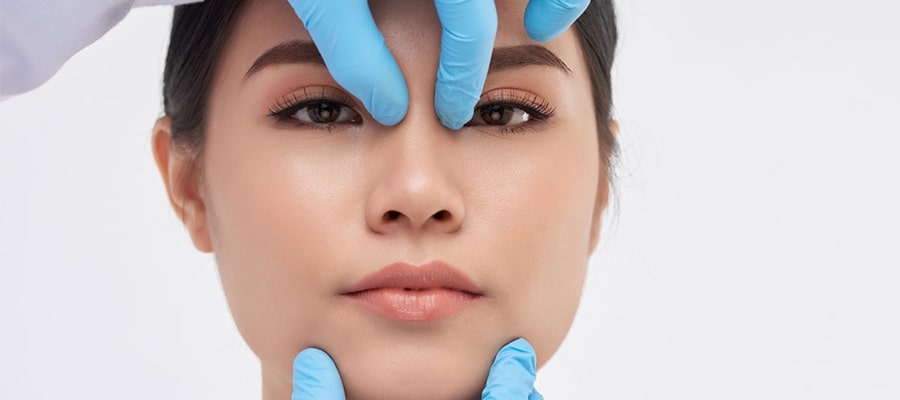What To Expect In Your First Visit To A Rhinoplasty Surgeon
Visiting a rhinoplasty surgeon for the first time is a significant step toward enhancing your facial appearance and addressing any functional concerns with your nose. Understanding what to expect during this initial consultation can help alleviate anxiety and prepare you for a smooth, productive experience.
Understanding the Purpose of the First Consultation
The first visit to a Rhinoplasty Surgeon in Riyadh(عملية تجميل الأنف في الرياض) is primarily about information gathering and building a foundation of trust between you and the surgeon. This consultation is your opportunity to discuss your aesthetic goals, medical history, and any breathing difficulties. The surgeon's role is to carefully listen, assess, and evaluate to determine the best approach tailored to your unique needs.
During this phase, the surgeon will explore your motivations for seeking rhinoplasty and explain what the procedure can realistically achieve. This mutual understanding is essential to set appropriate expectations and establish a clear communication channel throughout your surgical journey.

Comprehensive Medical Evaluation
A vital part of the initial consultation involves a thorough medical evaluation. The Rhinoplasty Surgeon in Riyadh will review your overall health, any previous nasal surgeries or injuries, allergies, and current medications. This information helps to assess your suitability for surgery and identify any potential risks.
The surgeon may also examine the external structure of your nose and the internal anatomy through a detailed physical inspection. This includes checking the nasal bones, cartilage, skin thickness, and breathing function. Understanding these factors allows the surgeon to design a personalized surgical plan optimized for both aesthetic improvement and functional performance.
Visual Analysis and Photographs
During your first visit, expect the surgeon to take standardized photographs of your nose from multiple angles. These images serve various purposes: they provide a baseline for pre-surgical analysis, assist with surgical planning, and help with post-operative comparison.
Some surgeons may use advanced imaging software to create a simulated preview of potential rhinoplasty results. This visualization can be a powerful tool to ensure your goals align with realistic outcomes, allowing you and the surgeon to discuss desired changes in a more concrete way.
Setting Realistic Expectations
One of the most important parts of your consultation is understanding what rhinoplasty can and cannot achieve. A professional Rhinoplasty Surgeon in Riyadh will provide honest feedback, clarifying the limitations of the surgery based on your facial structure and skin type.
This discussion often involves explaining the difference between open and closed rhinoplasty techniques, potential recovery timelines, and the importance of patience for gradual healing. Fostering realistic expectations helps reduce the risk of dissatisfaction and ensures that you are mentally prepared for the process ahead.
Personalized Surgical Plan Discussion
After reviewing your medical evaluation and imaging, the surgeon will outline a personalized surgical plan tailored to your specific needs. This plan will address both aesthetic enhancements and any functional issues such as nasal obstruction or breathing difficulties.
The discussion may also cover different procedural options, anesthesia types, and the anticipated surgical approach. This stage is crucial for addressing all your questions and ensuring you feel confident and informed before moving forward.
Preoperative Instructions and Next Steps
At the end of your first visit, the rhinoplasty surgeon will provide detailed preoperative guidelines to prepare you for surgery. These may include lifestyle adjustments such as avoiding smoking, certain medications, or supplements that could interfere with healing.
You will also learn about the scheduling of your procedure, what to bring on the surgery day, and post-surgical care essentials. This information aims to ensure you are well-equipped for a smooth surgery and recovery process.
How to Prepare for Your First Visit
Maximizing the benefit of your initial consultation involves some preparation on your part. It’s helpful to bring:
A list of your medical history and current medications
Photographs of your nose from your youth (if available), which can sometimes help in understanding your natural nasal structure
Inspiration images to visually demonstrate your goals
A prepared list of questions or concerns to discuss with the surgeon
Being organized will help the meeting stay focused and productive, paving the way for a clear surgical plan.
Patient-Surgeon Communication: Why It Matters
Building a strong rapport with your rhinoplasty surgeon is key to a successful outcome. Open communication during your first visit allows the surgeon to understand your desires and concerns fully while providing you with trustworthy guidance.
Choosing a surgeon who listens carefully, explains procedures clearly, and encourages questions can alleviate anxiety and foster confidence throughout your rhinoplasty journey.
FAQs
What should I bring to my first rhinoplasty surgeon appointment?
Bring a detailed medical history, current medications, photos of your nose from younger years if possible, and any inspiration images to help communicate your goals.
How long does the first rhinoplasty consultation usually last?
Typically, the initial consultation can take between 30 to 60 minutes, depending on the complexity of your concerns and the surgeon’s thoroughness.
Will the surgeon perform any physical exams during the first visit?
Yes, the surgeon will conduct a detailed analysis of your nasal structure both externally and internally to assess suitability and plan the procedure.
Can a rhinoplasty surgeon guarantee the final results during the first visit?
No reputable surgeon can guarantee precise final results at the first consultation, but they will provide a realistic preview based on experience and imaging technology.
Is it normal to feel nervous before the first visit to a rhinoplasty surgeon?
Absolutely, feeling nervous is common. The first consultation aims to answer your questions and reduce worries by providing clear, honest information.
How important is patient-surgeon communication during the first visit?
Effective communication is crucial. It ensures your goals are understood and helps the surgeon tailor the procedure to meet your expectations safely.